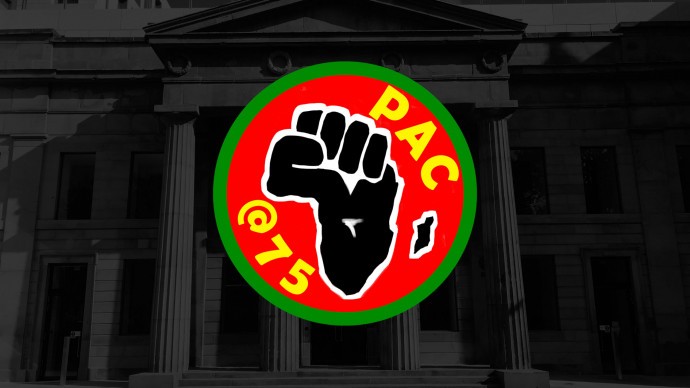
NWCDTP Equality, Diversity, and Inclusion Training
PAC75 event reviewed by Sophie Anders, University of Salford
Resources
Diversity, Inclusion and Unconscious Bias with Judeline Nicholas, EW Group, 18th October 2020
Whilst some of the PAC@75 events celebrated Manchester’s impact on global history, others looked to the future to consider the ways we can continue to tackle contemporary challenges surrounding systemic and institutional racism. One of these events was the NWCDTP-funded Equality, Diversity and Inclusion training sessions with The EW Group that aimed to interrogate unconscious bias and helps us to reflect on our own behaviour. I attended the event as I wanted to educate myself further on the topic of unconscious bias. I routinely analyse Northern Irish literature, written by both Catholic and Protestant authors, who reflect upon Troubles and its sectarian conflict. The sectarian conflict between the Catholic community and the Protestant community produces contested narratives, where neither side can agree on the account of history nor recognise each other’s suffering. I have noticed that, due to my personal relationship with Northern Ireland, that I tend to learn towards a particular perspective. My participation in this training event was a way of addressing the issue of unconscious bias that creeps into my analytical work, and how to correct it so I can more accurately depict both communities represented in Northern Irish literature.
Judeline Nicholas from The EW Group and Emma Barnes from the University of Salford were fantastic hosts, and touched upon the sensitive topics of diversity, inclusion, and unconscious bias with poise and understanding. Judeline Nicholas conducted the event and directed our attention to the different ways that BAEM are excluded from the political and academic landscape. It made me reflect on how fortunate I am, as Caucasian, to have never suffered discrimination in education, housing, jobs, nor a lack of representation in popular media. It helped me to reflect on my achievements and acknowledge how what was fortunate for me, might not be the case for marginalised minorities. Judeline stressed to us the importance of diversity and inclusivity becoming the BAEM community, acknowledging that people are, too, discriminated against due to gender, age, and ability, and that we cannot begin to address the problem of unconscious bias without acknowledging its significant impact upon society. The priority for Judeline is education, highlighting the ways the medica can distort our perception of a particular group, so that we, as an audience, can do better by listening to the concerns of minorities without inserting ourselves into their narratives and ignoring their right to self-representation.
The most impactful aspect of the training was when Judeline had us separate into small work groups. We were asked to reflect upon our lives, on those moments where we might have expressed unconscious bias based on how someone looks, on their race, or even their gender. We were asked to categorise those moments and share with the overall group, how and why we made these assumptions based on appearance, or when we were subject to these assumptions ourselves and how it made us feel. It brought up questions about how unconscious bias extends into religion and sexuality. We were able to discuss these personal instances in a healthy, productive manner without any judgement from Judeline, who encouraged us to be as open and honest as possible. It brought up some difficult emotions and questions, about instances where we have assumed the behaviour of a person based on appearance. However, the training conducted by Judeline and organised by Emma, has opened up new means of discussing the world around us and how to recognise and correct behaviour that is problematic to marginalised minorities. It opened our eyes to how we can better work to include marginalised voices, and to keep talking and supporting these communities in their advocation and demand for increased diversity.
Sophie Anders is a second year PhD candidate at the University of Salford, funded by the Pathways to Excellence Scholarship. Her research focuses extensively on the representation of queer masculinity in contemporary Northern Irish fiction. Her research encompasses Queer Theory, Gender Studies, Affect Theory, Subcultural Research, and Narratology as well as historical and contextual relevance. Sophie is supervised by Dr Caroline Magennis, but achieved her Master’s in Irish Studies under the supervision of Dr Stefanie Lehner at Queen’s University Belfast, her undergraduate degree was also completed at the University of Salford.
More information

